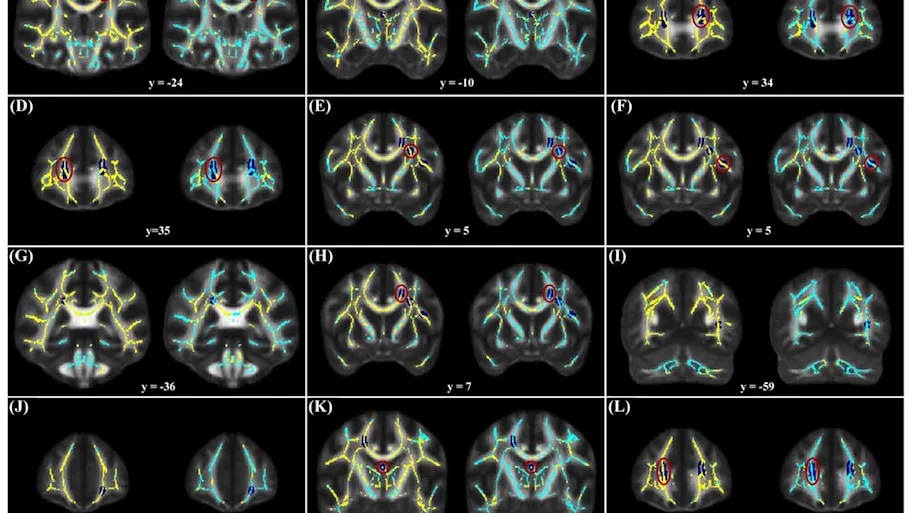
- Science News
- Health
- Shaping your brain with exercise, video games and more
Shaping your brain with exercise, video games and more

The Frontiers Research Topic, published in Frontiers in Human Neuroscience, consists of a collection of scientific articles investigating these cognitive training techniques in health and disease, and in youth and old age.
— By Conn Hastings
Our cognitive abilities allow us to understand and interact with our world. Cognition occurs in the brain and cognitive abilities or skills include processes such as attention, memory, decision making, reasoning and problem solving. In short, we need such skills to carry out tasks, from designing a space rocket to tying our shoelaces. Human cognitive skills underlie our advanced civilization and in many ways, distinguish us from the plants and animals who share our planet.
Scientists have been exploring and developing an arsenal of tools to train and streamline the mind. Some of these techniques, such as physical exercise or playing video games, are not what would jump to mind, to enhance the mind. However, along with cognitive training methods such as meditation, they are part of the cognitive weaponry being explored by neuroscientists. The Frontiers Research Topic, “Cognitive and Brain Plasticity Induced by Physical Exercise, Cognitive Training, Video Games and Combined Interventions”, published in Frontiers in Human Neuroscience, consists of a collection of scientific articles investigating these cognitive training techniques in health and disease, and in youth and old age.
Are our cognitive abilities something innate that we are born with and can’t change? Do they naturally change during our lives? Unfortunately, cognitive abilities can be reduced by injury or disease and also decline with old age. “People experience a decline in attention and long-term memory as they age,” explains Topic Editor Soledad Ballesteros of the Universidad Nacional de Educación a Distancia. However, this decline is not inevitable, and scientists are finding ways to reduce it, while discovering techniques for younger people to also boost their cognitive skills.
The brain’s ability to change and reorganize itself is called neural plasticity. “Neural plasticity exists at many levels of the neural substrate in all individuals, from the cellular level to the level of the brain structure itself. Even the ageing brain retains some neuroplasticity,” explains Ballesteros. Nurturing and enhancing our cognitive abilities could help us to better grasp, remember and use information we are exposed to and could allow us to complete tasks more quickly, regardless of our age. But how can this be achieved? “The articles included in this Research Topic cover the latest interventional and cross-sectional studies investigating the cognitive and neural effects of physical and cognitive activity across the lifespan,” says Topic Editor Louis Bherer of the Université de Montréal.
One approach explored by studies in the Research Topic is physical exercise, which is well-known as important in maintaining physical health. However, it is becoming more appreciated as vital for our cognitive health and in preventing neurocognitive decline in older people. One study suggests that higher levels of physical activity can partially counteract cognitive decline in older people and patients with diabetes. Other researchers showed that exercise during math lessons could improve math performance in preadolescent children. How physical exercise affects the brain is not yet completely understood. However, a review suggests that exercise can produce biological changes such as increasing nerve cell or blood vessel growth and that this can contribute to structural changes in the brain. Exercise can also affect motivation, mood and quality of sleep, all of which can contribute to our cognitive abilities. A different review summarizes the potential of aerobic exercise in treating mental illnesses, including schizophrenia and major depressive disorder, by stimulating neural plasticity in the brain.
Another unexpected approach to shape our minds is playing video games. Video games are fun and accessible, and are therefore more likely to be adopted and used consistently by people in the long-term. Video games often require players to make rapid decisions, or to memorize many items at once, all of which can provide an entertaining work-out for our minds. In fact, occasional or regular gamers have been reported as experiencing less depression than non-players, though excessive playing has been connected with social isolation and a sedentary lifestyle. “We included articles that investigated whether video game and computerized cognitive training approaches enhance perceptual and cognitive functions in both young and older individuals,” explains Topic Editor Claudia Voelcker-Rehage of the Technische Universität Chemnitz.
One study showed that older adults with mild cognitive impairments demonstrated a reduction in driving errors after several sessions in a driving simulator. Another group of researchers surveyed younger people and found that they reported a variety of benefits when using brain-training smartphone apps, demonstrating the accessibility and popularity of this type of cognitive training. Older adults who underwent video game training demonstrated increases in certain types of memory, and some of these enhancements were sustained for at least three months, demonstrating the importance of finding cognitive training approaches with long-term benefits. A review summarizes many of the potential cognitive benefits of playing video games including enhancing attention, visuospatial skills and memory.
Finally, a whole variety of other training approaches are explored in the Research Topic. For example, a group of researchers showed that mindfulness meditation training could reduce pain perception in patients experiencing pain. Another study investigated the potential for written cognitive training, involving memory, verbal fluency, arithmetic and reasoning exercises, to improve a variety of cognitive abilities in older adults. Cognitive training was also shown to improve the cognitive skills of older factory workers, who perform repetitive tasks at work that don’t require much thought, and so could be at greater risk for cognitive decline. Young adults who underwent cognitive training demonstrated increases in certain cognitive skills, including some improvements in skills that were not specifically trained, demonstrating that the training had far-reaching effects.
Until relatively recently, scientists believed that once our brains had reached maturity, they couldn’t be enhanced and cognitive decline was somewhat inevitable. However, this Research Topic shows that our minds can be sharpened, regardless of our age, using a whole range of different techniques. “The major implication of this research is that as neural plasticity exists at many brain levels, people can do a lot to maintain and/or improve cognition,” says Bherer.
The Research Topic contains many more interesting studies beyond the selection presented here. The Topic Editors are proud of the submissions to the Research Topic and of their decision to create a Research Topic with Frontiers. “This Frontiers Research Topic includes 44 articles written by many respected authors in the field. We published with Frontiers because we think that it is important to reach a wider audience and that scientific knowledge should be disseminated and accessible to all,” says Ballesteros.
Ballesteros and her fellow Topic Editors have been shortlisted for the Frontiers Spotlight Award, where the winners are granted US$100,000 to host their own conference themed around their Research Topic.
Take a look at the other finalists here.






